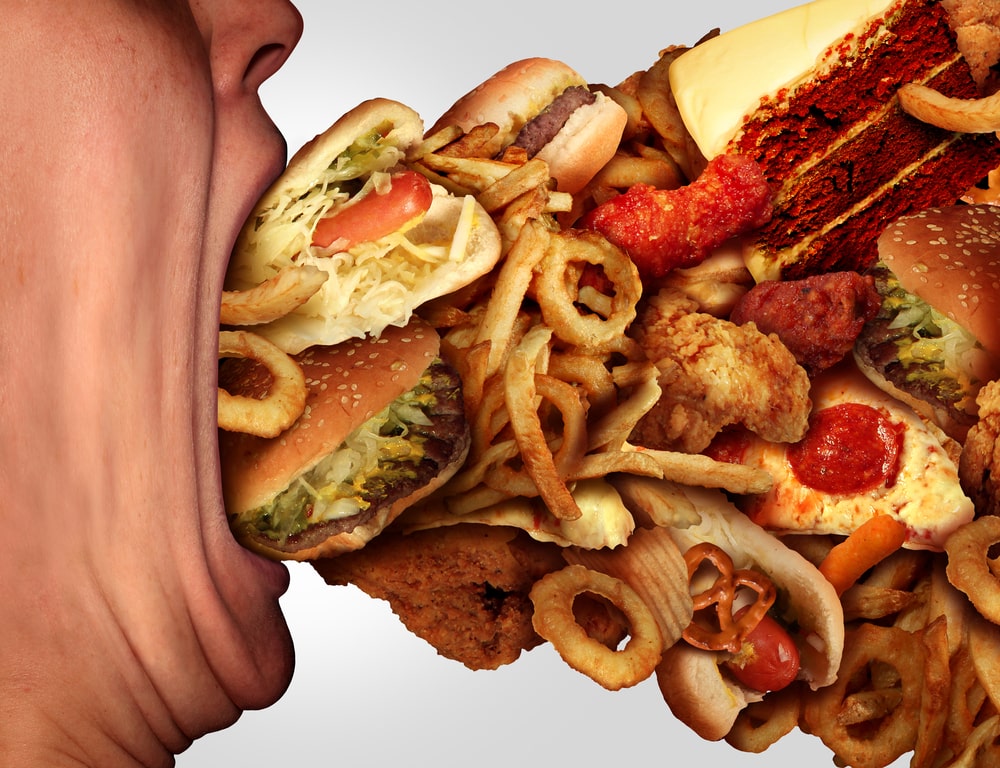Diabetes is a chronic health condition that affects millions of people worldwide. It is a complex disease that occurs when the body cannot properly regulate blood sugar (glucose) levels, leading to elevated blood sugar levels, which can have serious health consequences if left untreated. In this blog, we will delve into the different types of diabetes, their causes, and the good and worst foods for diabetics to help you better understand and navigate this condition.
What causes Diabetes?
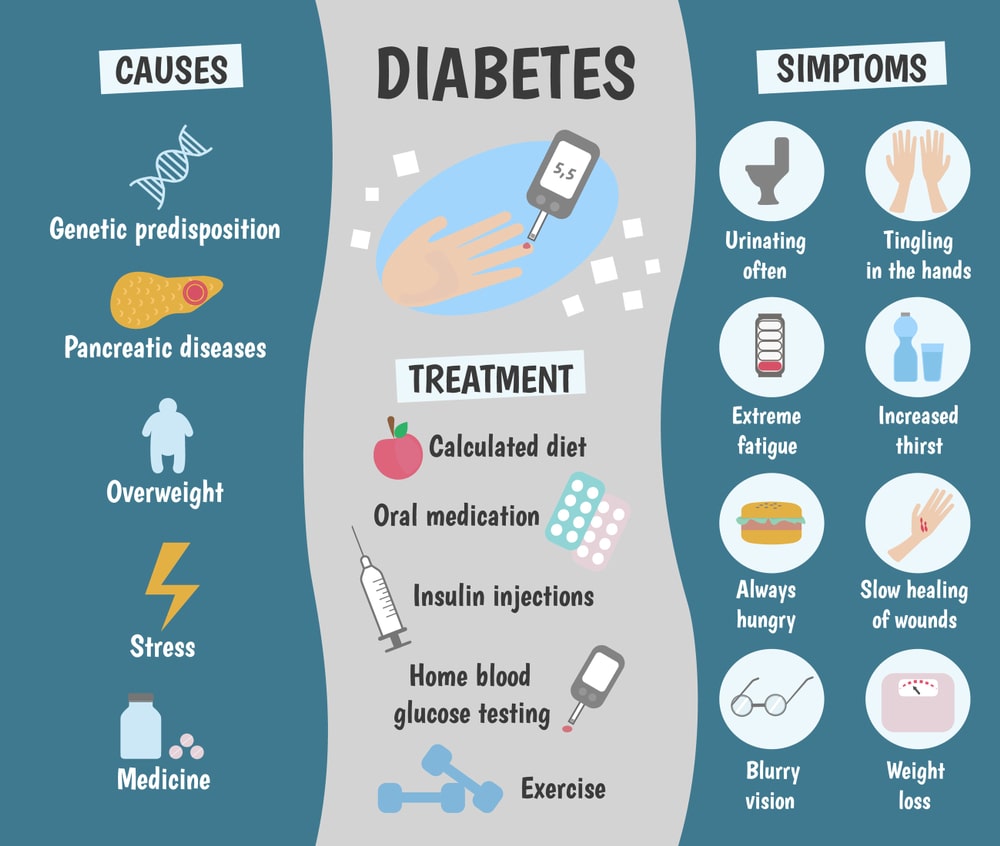
Diabetes is a complex condition with various contributing factors. The causes of diabetes can differ depending on the type of diabetes. The primary types of diabetes are Type 1 diabetes, Type 2 diabetes, and gestational diabetes, and each has distinct underlying causes:
Type 1 Diabetes:
Autoimmune Reaction: Type 1 diabetes is primarily an autoimmune disease. The exact cause is not fully understood, but it is believed to result from a combination of genetic and environmental factors. In individuals with a genetic predisposition, an autoimmune reaction occurs where the body’s immune system mistakenly attacks and destroys the insulin-producing beta cells in the pancreas. This destruction leads to a lack of insulin production.
Type 2 Diabetes:
Insulin Resistance: Type 2 diabetes is strongly associated with lifestyle factors and genetics. The primary cause is insulin resistance, where the body’s cells do not respond effectively to insulin. Insulin is a hormone that helps regulate blood sugar levels by allowing glucose to enter cells. Several factors contribute to the development of insulin resistance including Obesity, Physical Inactivity, Poor Diet, and Genetics, etc.
Gestational Diabetes:
Hormonal Changes: During pregnancy, a woman’s body goes through significant hormonal changes. These changes can lead to insulin resistance, particularly in women with a genetic predisposition to diabetes. In gestational diabetes, the pancreas often cannot produce enough insulin to meet the increased needs during pregnancy.
It’s important to note that while these are the primary causes of diabetes, there can be other contributing factors, and the exact mechanisms are still being studied. Additionally, there are rarer forms of diabetes, such as monogenic diabetes and secondary diabetes, which have different underlying causes.
What are the 5 worst foods for diabetics?
For individuals with diabetes, it’s crucial to be mindful of their diet to help manage blood sugar levels effectively. While there are no specific foods that are universally “worst” for all people with diabetes, there are certain types of foods and dietary patterns that can be particularly problematic when it comes to blood sugar control and overall health.
Here are some of the dietary choices and the worst foods for diabetics:
Sugary Foods and Beverages:

Candy: Sweets, including candies, cookies, cakes, and sugary snacks, are high in refined sugars and can cause rapid spikes in blood sugar levels.
Soda and Fruit Juices: Sugary drinks like soda and many fruit juices are loaded with sugar and provide little nutritional value. They can lead to sharp increases in blood sugar.
Some sugary foods have a high glycemic index (GI), meaning they cause a rapid spike in blood sugar levels. Foods with a high GI can lead to blood sugar fluctuations, making them less suitable for people with diabetes or those trying to manage their blood sugar levels.
For individuals already diagnosed with diabetes, the consumption of sugary foods can worsen diabetes control and increase the risk of complications. High blood sugar levels can contribute to various diabetes-related complications, such as cardiovascular disease, kidney damage, neuropathy, and eye problems.
Refined Carbohydrates:

- White Bread and White Rice: These foods are rapidly digested and can cause rapid blood sugar spikes. Opt for whole grains like whole wheat bread and brown rice, which have a lower glycemic index.
- Pasta: It is made from refined flour and can have a similar effect on blood sugar. Consider whole wheat or alternative grain pasta options.
Refined carbohydrates can lead to insulin resistance, where the body’s cells become less responsive to the effects of insulin. When this happens, the pancreas must produce more insulin to keep blood sugar levels in check. Over time, the pancreas may not be able to keep up with the increased demand for insulin, leading to high blood sugar levels and diabetes.
Diets high in refined carbohydrates are often calorie-dense but not very filling. Overconsumption of these foods can lead to weight gain and obesity, which are significant risk factors for type 2 diabetes. Excess body fat, especially around the abdomen, can further exacerbate insulin resistance and is one of the worst foods for diabetics.
Highly Processed Foods:
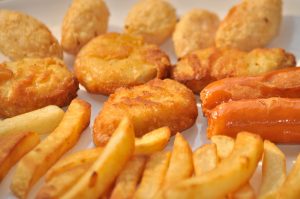
- Processed Snacks: Chips, crackers, and other processed snacks are often high in unhealthy fats, salt, and added sugars.
- Fast Food: Most fast food items are high in unhealthy fats, sugars, and refined carbohydrates. These can disrupt blood sugar control and contribute to weight gain.
Many highly processed foods, such as sugary cereals, soda, candy, and sweetened snacks, are loaded with added sugars. Consuming excess sugar can lead to weight gain, insulin resistance, and an increased risk of type 2 diabetes.
Ultra-processed foods are often nutritionally poor, lacking essential vitamins, minerals, and fiber. A diet high in these foods can displace nutrient-dense options, contributing to poor overall nutrition and an increased risk of diabetes.
Processed foods often contain unhealthy trans fats and excessive amounts of saturated fats, which can contribute to inflammation and insulin resistance, two key factors in diabetes development.
Highly processed foods can contribute to insulin resistance, where the body’s cells become less responsive to insulin. This condition can eventually lead to type 2 diabetes. This is one of the worst foods for diabetics.
Fried Foods:
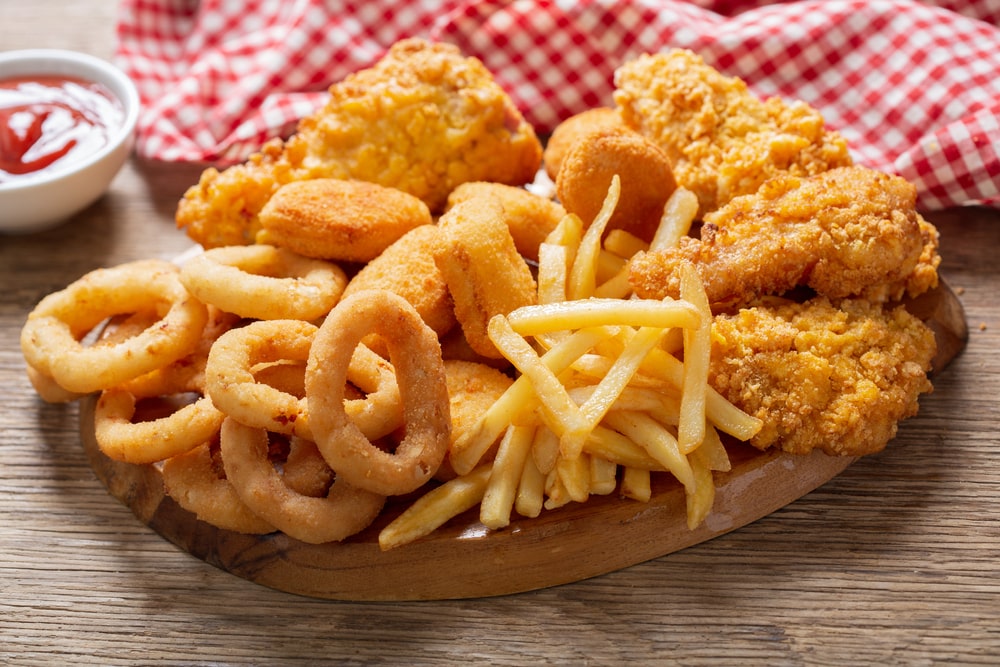
Fried foods, such as deep-fried snacks, fried chicken, and French fries, can be high in unhealthy fats and calories, which can lead to weight gain and worsen insulin resistance.
Fried foods are often high in carbohydrates and unhealthy fats, which can lead to rapid spikes in blood sugar levels. Diabetics should be mindful of their carbohydrate intake to help manage blood glucose levels.
Fried foods are typically prepared using oils that are high in saturated and trans fats, which can contribute to insulin resistance and increase the risk of cardiovascular problems. Diabetics are at a higher risk for heart disease, so it’s essential to limit the consumption of unhealthy fats
Full-Fat Dairy Products:
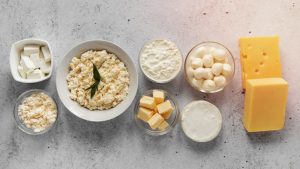
While dairy products can be a part of a balanced diet, full-fat versions can be high in saturated fats. It’s often better to opt for low-fat or fat-free dairy options.
Saturated fats, commonly found in red meat, full-fat dairy products, and some processed foods, can raise LDL cholesterol levels and should be limited. Trans fats, often found in many packaged and fried foods, are particularly harmful and should be avoided altogether.
Even healthy fats contain calories, so it’s important to be mindful of portion sizes. This can help with weight management, which is a crucial aspect of diabetes management.
Others:

- Fruits are generally healthy, but some fruits are high in natural sugars. Consuming large quantities of these high-sugar fruits can cause blood sugar spikes. It’s essential to monitor portion sizes and choose lower-sugar fruits like berries and citrus fruits.
- Alcohol can affect blood sugar levels and should be consumed in moderation. It’s important to be aware of how different types of alcohol can impact blood sugar and to monitor blood sugar levels when drinking.
- Sauces, dressings, and condiments with added sugars can contribute to higher calorie and sugar intake. Opt for low-sugar or sugar-free alternatives.
It’s important to remember that individual responses to foods can vary. People with diabetes should work closely with their healthcare team, including a registered dietitian or nutritionist, to create a personalized meal plan that suits their needs helps manage blood sugar levels effectively, and avoid the worst foods for diabetics.
This plan will take into account factors such as carbohydrate counting, portion control, and the glycemic index of foods. Making informed dietary choices and monitoring blood sugar levels regularly are key steps in diabetes management.
Endnote:
Diabetes is a widespread and serious health condition that requires careful management. With the right lifestyle changes, avoiding the worst foods for diabetics, medication, and support, many people with diabetes can lead healthy and fulfilling lives.
It is crucial to stay informed, follow a personalized treatment plan, and work closely with your healthcare team to effectively manage this chronic condition. Diabetes may be a part of your life, but it doesn’t have to control it.
FAQs:
Can Diabetics eat chinese food?
Yes, they can eat Chinese Food. Pick traditional foods that are low in fat, and high in fiber, vitamins, and minerals. Great options include dark green vegetables like Chinese broccoli, choy sum, watercress, Chinese chives, Chinese yard-long beans, and amaranth, often known as Chinese spinach, as well as beans, peas, tofu, bean sprouts, and these vegetables.
Is angel food cake good for Diabetics?
Due to the high amount of sugar it contains, traditional angel food cake is not suitable for diabetics and falls under the worst foods for diabetics. In this recipe, a sugar replacement is used.
What foods can help a diabetic gain weight?
Avocado, Nuts and Seeds, Whole Grains, Oats, and Lean Proteins like skinless poultry, fish, tofu, legumes, dried fruits, etc. can help in weight gain.
What foods are good for Type 2 Diabetes?
One can eat more fruits, vegetables, beans, lentils, and whole grains. Also crucial is lean protein. And the most important of all is a check on sugar levels by glucometer.
Can Diabetics eat fried food?
Given that fried foods are high in simple carbohydrates and fat, which are problematic for diabetics, and are considered the worst foods for diabetics, it is best to avoid giving them to your diabetic parent.
References:
- https://www.webmd.com/diabetes/diabetic-food-list-best-worst-foods
- https://www.healthline.com/nutrition/foods-to-avoid-with-diabetes
- https://www.mayoclinic.org/diseases-conditions/diabetes/symptoms-causes/syc-20371444
